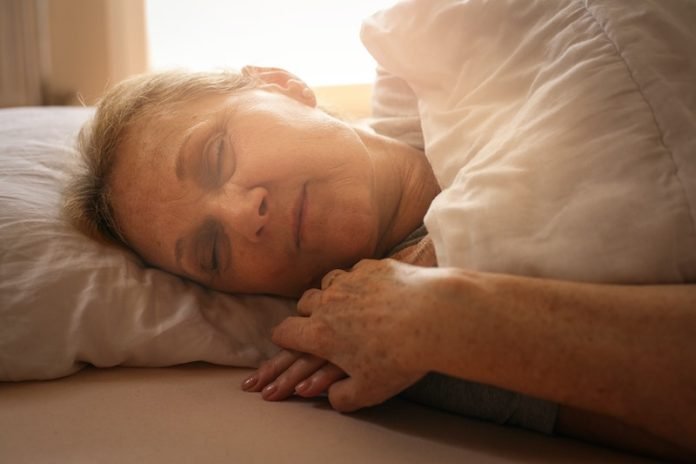
As we age, a good night’s sleep becomes increasingly elusive.
While numerous medical and behavioral interventions have aimed to tackle sleep issues, the importance of environmental factors like bedroom temperature has been largely overlooked.
A new study, led by Dr. Amir Baniassadi from the Hinda and Arthur Marcus Institute for Aging Research at Hebrew SeniorLife and Harvard Medical School, has shed light on this aspect.
The study finds that for older adults, the ideal ambient temperature for sleep ranges between 68 to 77°F.
Methodology: Wearable Monitors and Sensors
The study followed 50 community-dwelling older adults, collecting nearly 11,000 person-nights of sleep data using wearable sleep monitors and environmental sensors.
The research team controlled for potential confounding variables and found that sleep efficiency dropped by 5–10% when bedroom temperatures increased from 77°F to 86°F.
Individualized Approach
An interesting finding is the considerable variation among subjects. This means that what may be an ideal temperature for one person may not necessarily be the same for another.
Dr. Baniassadi emphasized that this should motivate people to personalize their bedroom temperatures based on their own comfort and needs.
Climate Change and Sleep
One of the key takeaways from the research is the potential impact of rising temperatures due to climate change on sleep quality.
This is particularly concerning for older adults, especially those from lower socioeconomic backgrounds. Dr. Baniassadi argued for enhancing their adaptive capacity as temperatures rise in urban areas.
Why This Matters
Poor sleep affects a multitude of health aspects like mood, stress reaction, productivity, diabetes management, and even risks for diseases like cardiovascular conditions.
Older adults are disproportionately affected by sleep issues, and given the already existing challenges they face, any improvement in sleep quality can significantly impact their overall well-being.
Next Steps
The research team plans to focus on the implications of climate change on sleep quality in low-income older adults and aims to develop environmental interventions to optimize their living conditions for better sleep.
This is a breakthrough study that broadens our understanding of the environmental variables affecting sleep and emphasizes the need for individualized, environment-centric approaches to improving sleep quality in older adults.
If you care about sleep, please read studies that common sleep and anxiety drug may cause addiction, and this herb may help you sleep better at night.
For more information about brain health, please see recent studies about common food oil in the U.S. that can change genes in the brain, and results showing this mental health drug may harm your brain health.
The study was published in the Science of The Total Environment.
Follow us on Twitter for more articles about this topic.
Copyright © 2023 Knowridge Science Report. All rights reserved.


